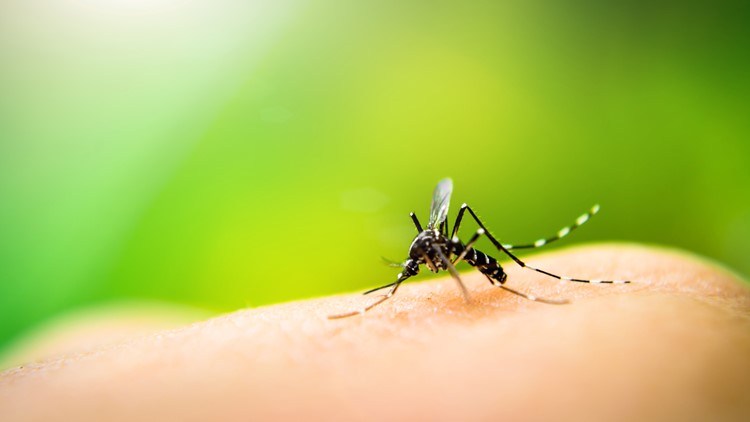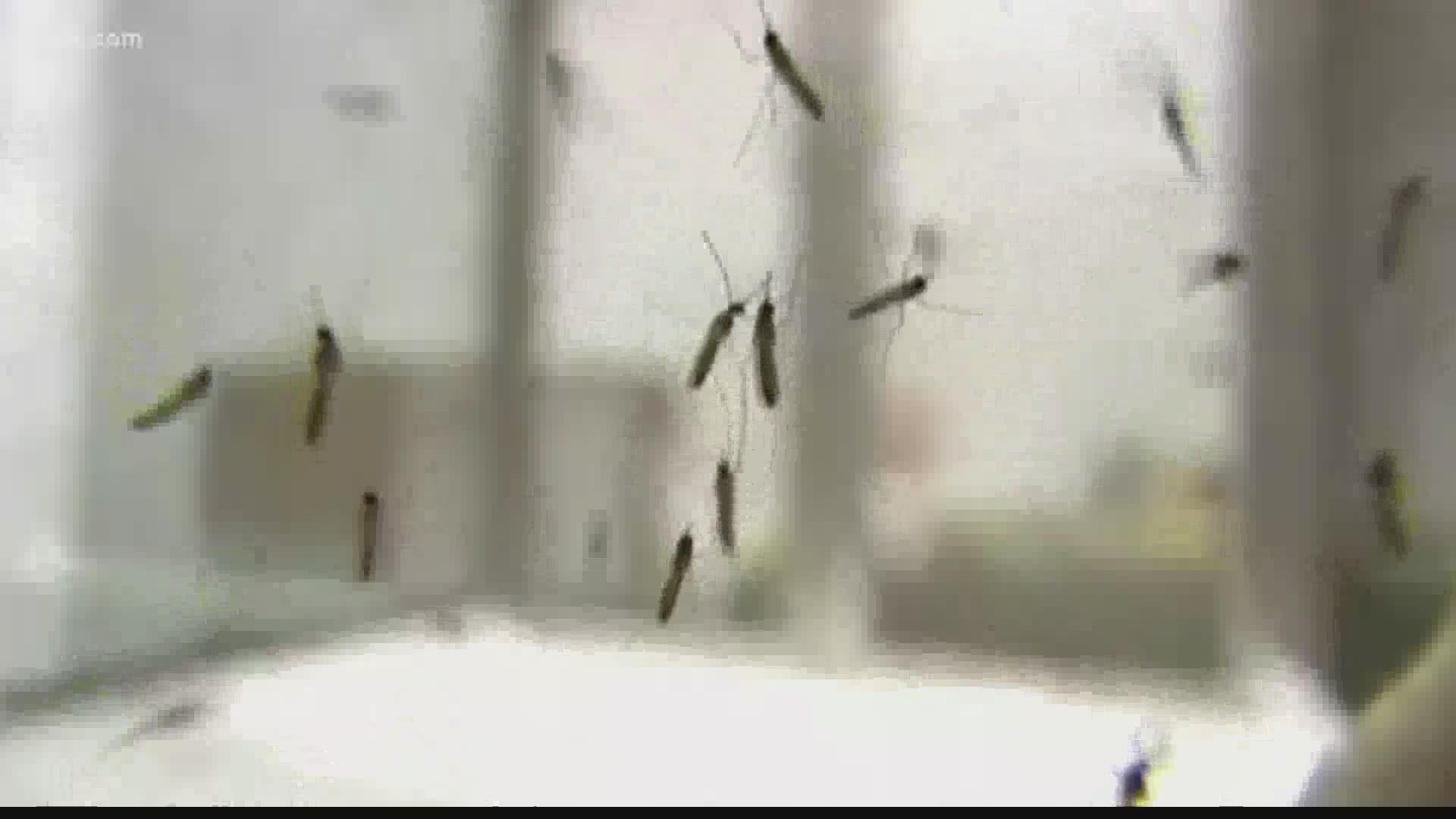ST. LOUIS COUNTY, Mo. — St. Louis County has reported its first probable human case of West Nile virus this year.
The patient was a man who lives in north county, the St. Louis County Department of Public Health said. He is now recovering at home after going to a hospital with symptoms that were consistent with the virus, which is spread by mosquitos.
“Local cases of West Nile are a reminder that preventative measures are important,” said Spring Schmidt, acting director of the department. “Even though serious West Nile virus cases in humans are rare, it is important to minimize our exposure. We can do this by eliminating opportunities for mosquitoes to breed and multiply, and by taking steps to prevent mosquito bites.”
The county health department said it works to prevent and control mosquitoes using techniques that are effective and also safe for the environment. The county collects and tests mosquitoes to see where efforts need to be focused. Pest management workers also spray areas where the bugs have tested positive for West Nile.
The county also offered these tips residents can take to stay safe and prevent mosquitoes:
- At least once a week, eliminate any sources of standing water around your home by draining garbage cans, buckets, toys, flowerpots, wading pools, pet dishes, and other objects. Turn them over to prevent them from refilling with water.
- Fill any holes or depressions in the yard with sand or dirt.
- Drill holes in the bottom of tire swings to allow water to drain.
- Change the water in birdbaths at least once a week and keep all gutters cleaned out.
- Treat birdbaths, decorative ponds, and other water sources that cannot be drained with products containing the active ingredient Bacillus thuringiensis israelensis, or Bti, a naturally occurring bacterium. Bti contains spores that produce toxins that specifically target and affect the larvae of the mosquito, blackfly and fungus gnat. It is non-toxic to humans and other animals and is approved for use in organic farming.
- Ensure that drainage pipes are properly sloped. Flexible drainage pipe is commonly used to drain water from downspouts. But if it is not properly installed, the pipe can hold water and breed mosquitoes.
- Repair tears in door and window screens to prevent mosquitoes from entering a home.
- When outdoors, wear long-sleeved shirts, long pants, and light-colored, loose-fitting clothing.
- Apply insect repellents registered by the Environmental Protection Agency (EPA) that contain one of the following active ingredients: DEET, picaridin (also called KBR 3023, Bayrepel, and Icaridin), oil of lemon eucalyptus, para-menthane-diol or IR3535. Always follow the directions on the label. Do not use products that contain oil of lemon eucalyptus or para-menthane-diol on children younger than 3 years of age, and never apply insect repellants of any kind to children under 2 months of age.
For more information on mosquito prevention, contact the department’s Vector-borne Disease Control Program office at 314-615-0680 or visit the department’s website.




